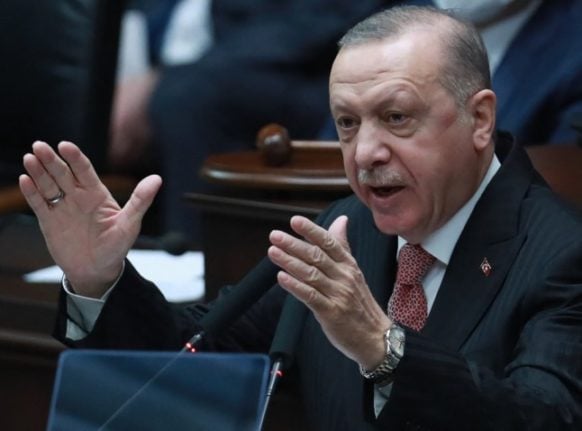Adem Yilmaz, a Turkish citizen, has been charged by a US federal grand jury with conspiring to carry out a 2008 suicide bombing in Afghanistan, which left two US soldiers dead and 11 others injured.
Yilmaz, also known as Ebu Talha, was deported to Turkey recently after
serving 11 years in a German prison for his role in planning large-scale
attacks in Germany.
SEE ALSO: Sauerland cell terrorist writing memoirs in jail
The United States had demanded that Yilmaz be handed over to face the
charges against him brought in New York.
Acting US Attorney General Matthew Whitaker said he was “gravely
disappointed” by Germany's decision to deport Yilmaz to Turkey rather than extradite him to the United States.
“The German government deliberately helped Yilmaz escape justice by placing him on a plane to Turkey,” Whitaker said in a sharply worded statement.
“The German government has refused to take any responsibility for failing
to extradite him to the United States, has flouted their treaty obligations
and has undermined the rule of law,” the acting attorney general said.
US 'will never relent'
US Deputy Secretary of State John Sullivan complained directly to Germany during a meeting in Washington Wednesday with visiting Foreign Minister Heiko Maas and Germany's ambassador to the United States, Emily Haber.
“Yilmaz is a convicted terrorist. He's charged with serious crimes by the
US,” State Department spokesman Robert Palladino told reporters.
“The US will never relent in its effort to bring Yilmaz to justice,” he
said, adding that Washington had also been in touch with Turkish authorities.
A German foreign ministry source said the deportation of Yilmaz to Turkey
was a “decision of the independent justice system” and was made “in compliance with the standards of the rule of law.”
Relations between Germany and the United States have been strained since Donald Trump became president, with the US leader openly criticizing Chancellor Angela Merkel's welcome to migrants from war-torn countries and questioning the value of the NATO alliance.
But Palladino said the United States still considered Germany a close ally,
explaining: “Friends must be frank with one another at times when they have concerns.”
A seven-count indictment seeking Yilmaz's arrest was issued several years ago by the US Attorney for the Southern District of New York.
Yilmaz, a member of a group called the Islamic Jihad Union, was accused of carrying out attacks on US troops on the Pakistan-Afghanistan border in 2006.
Yilmaz also was alleged to have had contacts with the man who carried out the March 3rd, 2008 suicide bombing in Afghanistan that killed two US soldiers.



 Please whitelist us to continue reading.
Please whitelist us to continue reading.
Member comments